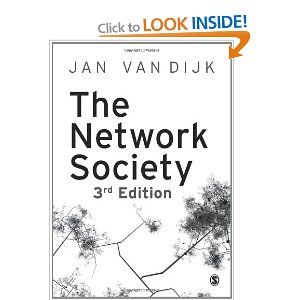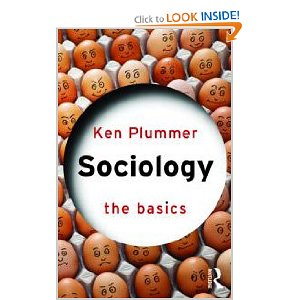Archive for the ‘Politics’ tag
Twitter – a tool for social good or another chance for online abuse? no comments
Twitter states that it is a tool for social good, helping charities to promote their cause, helping businesses to work more effectively and giving the public fast, up to date access about whatever they find interesting [1]. While twitter has undoubtedly been used for good, for instance in education [2], and for fundraising activities [3], it has also been seriously abused [4], leading to implications for society on whether the site can be controlled effectively in the future, or whether things will only get worse.
The two disciplines I have chosen to look at are Philosophy and Politics.
Philosophy:
In this area I have been looking at the three main distinctions of philosophy; metaphysics, epistemology and moral/political philosophy. Whilst the first two areas are perhaps more abstract, containing huge fundamental questions beyond the scope of this project, it is the third area that I am particularly interested in and that I believe ties in well with the question. For instance the area can be well applied to how people, including the general public and those with power, use twitter on a daily basis. Should companies be allowed to use celebrities to casually endorse their products? Why do hundreds of people take to ‘bullying’ one another on a daily basis? Does a lack of norms allow for this? Can we justify this behaviour? Is it the duty of the government to do something about this?
Politics:
This is an area which I have not yet looked into as fully, but from my first readings it appears that politics studies anything and everything to do with those who have been allocated a position of power, and what policies they decide to uphold. In the area of political philosophy, I am particularly interested in what makes governmental decisions legitimate and does the government have power over online space?
Resources:
[2] http://www.fp.ucalgary.ca/maclachlan/EDER_679.06_Fall_2009/tweeting_the_night_away.pdf
[3] http://www.entrepreneur.com/article/217772
[4] http://www.bbc.co.uk/news/uk-23485610
Philosophy
Craig, E. ‘Philosophy: A very short introduction’
Honderich, T. ‘The Oxford companion to Philosophy’
Nutall, J. ‘An introduction to Philosophy’
Warburton, N. ‘Philosophy the basics’
Sellers, R. ‘The principles, perspectives and problems of Philosophy’
Politics
Lanne, J. and Ersson, S. ‘Comparative Politics’
Kelly, P. ‘The Politics book’
Political Philosophy
Wolff, J. ‘An introduction to Political Philosophy’
Swift, A. ‘Political Philosophy’
Globalisation and Global Politics no comments
Having taken some time out to consult my current notes and research I came to the conclusion that there are three areas that still need more development before I will begin writing out my Interdisciplinary Review. I need to; gain an understanding of globalisation, find a stronger core-text discussing Politics and find a more comprehensive examination of Facebook. For this week’s post I will discuss my readings on globalisation and the remaining topics will be discussed in the order above in the subsequent weeks to come.
The No-Nonsense Guide to Globalization – Wayne Ellwood

This book provides a great overview of the basic notions involved in globalisation and global politics. Though the book does take a somewhat biased view (the author clearly has some anti-globalisation sentiments) the text is easily understandable and details much of the impact and direction of globalisation through recent history. It is written essentially as an American counterpart to the “Very Short Introductions” discussed previously.
Two notions in particular struck me as applicable to discussions of social networking. Firstly, Ellwood notes that the process of globalisation has changed over time. Means of travel, trade, and interaction (languages) have changed dramatically even in recent years and this has greatly modified the way in which globalisation takes place. There are some parallels between this idea and how social networking has integrated with peoples lives. Where previously computers were the terminal of access to your social network now phones, games consoles and various other extraneous devices such as cameras all provide similar or alternative means to access this network. Just as we see the process of globalisation changed by the advances in communication we may expect similar implication for the rates and direction of expansion seen in social networks as our interactions with these networks change. Before discussing the second point I will introduce the second book I have consulted on the topic of globalisation:
Globalization- A Basic Text – George Ritzer

This book provides a significantly more detailed approach to globalisation however, one recurring theme becomes apparent that is seen in both Ellwood and Ritzer’s books and across the topics of discussion within the context of globalisation: control.
Globalisation can be argued to be a positive tool of expansion but this also often results in restrictions being imposed on those that live beneath its shadow. Examples such as the “Tobin Tax”, a tariff charge used to impose restrictions on the flow of wealth between globalised and globalising peoples. Though originally intended to protect the interest of citizens this can also have negative effects by impinging on people ability to interact freely or restricting the ways in which they interact to only those interactions deemed “acceptable”. This theme is seen throughout discussions of globalisation particularly involving issues like imperialism. To what extent do emerging global powers control the restrict the development of global culture by imposing their own norms upon others? Does such a trend exist in social networks with popular networks buying up smaller ventures before they can compete or by forcing users to become dependant on their structure by tying multiple online identities to a single social network user account? Are these kinds of effects deliberate or the natural outcome of expansion? Do networks impose restrictions on each others use just as nations states do on their citizens?
Whilst globalisation provides one useful area of discussion within the context of politics I still feel that I need a stronger political text to support my discussion of the topic. The next post to come will be a discussion of this text.
Social Media no comments
This week I took a step back from the disciplines I have been studying and approached some literature on social media. My intention was not to become a social media expert but instead to approach the topic from the perspective of both sociology and politics. I read from one more technical textbook which examined both the structural nature and impact of networks within society; The Network Society by van Dijk, and one more narratively structured book centring on the beginnings, development and impact of the social media giant Facebook; The Facebook Effect by Kirkpatrick. Though both disciplines have a lot to say about each of the books I felt that certain topics and certain disciplines lent themselves well to providing comment on particular issues.
Structure and Sociology

The network society starts as a technically focused book and develops into an interesting sociological account of the impact of networks on everything from economics to social policy. With particular relation to the topics of social networking are the discussions of culture and psychology.
The book outlines a variety of perspectives on the cultural impact of networks and social media. This raises a common theme from the sociological literature with regards to technological v.s. social determinism i.e. whether peoples ‘use’ or technologies ‘structure’ and ‘purpose’ (if we take it to have explicit purpose) drives network development.
Equally, further points can be made with regard to the nature of modernity and social media; each country and even culture modernising at different rates and in different ways. It is not necessarily clear from the text how these interactions of different varieties of social media and/or what we might call the interaction of more ‘developed’ systems/networks have within the context of society. There is plenty of opportunity for interdisciplinarity here with both the social and political nature of Marxism offering some critiques within this context; in particular Weberian Neo-Marxism and it’s perspectivism.
Narrative and Politics

The Facebook effect documents the history of the site and it’s now famous owners. It would be impossible not to draw similarities between the formative processes which the site underwent and politics at large. Whether it be the questionable tactics used to obtain user informations paralleled with government spying for the “greater good” or the internal struggles between the site owners paralleled with every internal political dispute ever; the story of Facebook is undoubtedly one rife with politics. As is the case within the political discipline, Kirkpatrick does a fantastic job of historically recounting these ‘political’ struggles and disagreements even without explicit intention (though perhaps a little editorialised).
But, the book highlights an important feature of social networks and of politics often ignored on both accounts: politics (and Facebook) is not just about the relationship between those at the top and those at the bottom but with every individual at each level and everyone else. This of course provides substantial room for the discussion of the sociological factors that govern such complex interpersonal relationships.
Having reached this point in my reading I feel that I have a reasonable understanding of the basics of each discipline along with the topic I have chosen. My intention for the coming week is to return to my notes first and plan some aspects of my accounts of each discipline. When this process is complete the areas I find to be lacking in depth shall be the ones that are the subject of my further reading to come.
Hacktivism: Information (over)governance and state protection no comments
Although my initial plan was to research solely e-mail hacking from a political perspective, and it appears that there a number of different cases on politics and e-mail hacking, Mitt Romney and Neil Stock, I believe it would be beneficial to open the subject out slightly to communications hacking (again). This allows me to review more cases in a wider areas of hacking channels and head towards an analysis of the political intent for communications hacking, rather than focusing on the specifics of the e-mail hacking cases.
After continuing my research it appears that there is a political sector dedicated to hacking of communications. This is called hacktivism. This word is a portmanteau of two words; hack: “the process of reconfiguring or reprogramming a system to do things that its inventor never intended” (BBC News, 2010) and Activist: an individual who is involved with achieving political goals. Hacktivism appears as a means for political personnel to seek retribution using computers and/or technological devices as a vehicle to perform such actions. This insinuates that hacktivism is an action that is surrounded by negative connotations involved with ‘damaging the opposition’.
However, a BBC News Story entitled: Activists turn ‘hacktivists’ on the web (BBC News, 2010, link) notes how a hacktivist body such as the Chaos Computer Club is not intent on causing chaos amongst their opposition or in society, they are an organisation that is built for defining and analysing ‘holes’ in security systems on the web to maintain an optimal level of security for such systems involved with government, national security and emergency services. This helps to protect the identity and reputation of the state, and its political counterparts, but potentially bias the system against a democracy and an ideology of the freedom of information.
Other hacktivist groups such as Anonymous and the Electronic Frontiers Foundation (EFF) have an alternative ideology in which they ‘fight’ for. These groups push for the freedom of information against the ‘corporate blockades’ (Ball, 2012) on the web, which are said to blind the population, of any given nation, from seeing the truths about our political leaders and their encompassing political parties. It is believed that, as we are going from a restriction of information to an abundance, society should reserve the right to view information concerning those that govern our lives.
Although it is a valid point to seek truths about our ‘leaders’, one may argue that the freedom of information is a subject that would be fraught with corruption and abuse, especially in a political sense. Information that is to be available to all citizens, including those that counter our political systems and ideologies, may be vulnerable to attacks.
In light of this, a debate around hacktivism is due for establishment in my next blog about political parties and communications hacking.
Slowed Progress But Marxism no comments
This week’s reading was somewhat disappointing. I had intended to get through more content however I found that much of what I was reading required a much deeper level of analysis to understand. For this reason, rather than exploring social networks or globalisation; I have focused more heavily on sociology and in particular one of the most famous thinkers to have influence the field: Karl Marx.
Both for Politics and for Sociology, Marx is held in very high regard. Despite how authors feel about the validity of Marx’s views; it is quite clear that most, if not all, commenter’s extend a degree of respect for the man regarding him as a thought leader both in his own time and beyond. Whilst I would have preferred a broader week of reading, the fact that Marx and Marxist theory exists so prominently both in sociology and politics I did not begrudge the topic the extra time I afforded it. I consulted two texts in particular.
Marx, Marginalism and Modern Society

This book offered a good introduction to Marx as a whole, in terms of both his contribution to politics and sociology. The thrust of the argument presented in this text is that Marx’s key contribution was his critique of the political economy. The author presents the case that whilst this was recognised to varying extents in politics and economics; sociological perspectives took longer to entwine themselves with Marxist viewpoints.
On reason for the eventually large scale adoption of Marxist theory within sociology is suggested to pertain to Marx’s views on materialism, in particular; Historical Materialism. The perspective argued that whilst history might have previously separated notions of personhood from thingness, history rather required a deeper account of interactions. For example, dissecting the “things” called institutions into the individual “people” they were made of. This view offers significant importance for sociology allowing far deeper consideration of the people that were previously amorphous entities. Many comparisons can be drawn between these notions and social networking. Not least because of the changing relationships such sites have had with their user bases over time but also at the level of individual users with the structural changes from simple lists of activity to Facebook’s features like “Timeline”. These most certainly can be argued to personalise “events” allowing them to become related much more closely to the individual they are associated with.
Classical Sociology

This book provided a good logical point of development for explaining the development of Marxist sociological theory. In particular it dealt with the ways in which Marxist theory has been modified or adjusted in what has been argued is a necessary process of modernisation.
This notion of modernisation does not reflect technological or social advancement explicitly but rather the sociological ideas about “modernity”. As before, this is essentially the view that different cultures/societies have modernised differently leading to “multiple modernities”. The author highlights that sociologists like Anthony Giddens have argued that modernity changes the social structure and as such requires a post-modern sociology. The means that only theories that account for such changes, only post-modern theories, are sometimes argued to be the only theories relevant to assessments of the modern world. This text’s author however, believes that Marxism exploits a loophole in this argument by way of the additional work done by one Max Weber.
The author argues that Max Weber’s neo-marxism, in particular the addition of Nietzsche’s perspectivism, is the key to incorporating Marxist theory into discussions of “modern” society. Perspectivism is the theory that the acquisition of knowledge is inevitably limited by the perspective from which it is viewed. This is infact a common view within sociology and has significant relevance to the nature of accounts of social networks. Does a persons experience of myspace or facebook vary if they are a “user”, a “business”, a “celebrity”, a “moderator”, a “site owner” and so on. When considered alongside political perspectives this is of course still deeply relevant. The nature of both a person’s position/perspective, the role that position/perspective implies and the power (or lack of power) that it entails all contribute the nature of the interactions they will experience.
For my reading this coming week it is my intention to focus on texts relating to social media. In particular The Network Society.
Moral Philosophy and Politics: An Oblique Perspective of E-Mail Hacking no comments
With an initial plan to scour the world for an insight into email hacking from the viewpoint of economists and psychologists, it suddenly came to me that I would be playing too safe a game. With Marketing being a subject so diverse and multi-disciplined, that encompassed areas of psychology in buyer behaviour and economics in statistics analysis, it seemed I had bound myself to a study area that appears difficult to steer away from wholly.
As our world is overrun by hackers and a growing abundance of readily made hacking software and programmers keen to get their hands on whatever they seek it seems bizarre that we still are ready to advertise ourselves on the likes of Facebook, Twitter and many other ‘self-branded’ web sources. The web is such an intrinsic part of our everyday life that we become so wound up in its beauty that we are unaware of any imminent attacks on our personal data.
From e-mail to database systems, from banking to business data, we are inundated with those who wish to hack into our lives for every penny and every piece of information that we hold dear. From recent personal experience, I had been faced with the dilemma of attempting to redeem my own personal e-mail account from those who ‘hacked’ it. I believed this to be an arduous task that is morally, socially and, potentially, financially unacceptable. After this event, I felt that I would like to pursue an understanding of it from a different perspective and realised that this would be the perfect opportunity to do so.
I have now chosen two very different subjects: moral philosophy and politics. From my initial understanding of moral philosophy is an ethical analysis of the self, and the awareness of ethical (mis)representations of action or communication. From further reading, it is believed that moral philosophy is dependant on a number of different issues including cultural values, heritage, environment and obligation (Schneewind, 1992). The cultural values specifically interest me as it is not without doubt that the varying cultures will determine various perceptions of what is morally acceptable.
My second subject is in politics, which a subject that can both be the cause and consequence of societal change in any nation. This subject helps to define our understanding of culture, psychology, finance and communications and reveals itself as a tug-of-war between power and peace (Morgenthau, 1993), greed and ethics. Furthermore, it can help to define a nation and its outlook on the rest the world through the ideologies of various political leaders whether in a dictated land or otherwise.
It appears that subjects would have, although different, solid perspectives on communications hacking and extenuate the need for this issue to subside. I will follow up my research by looking into how moral philosophy develops according to nation, race and culture. I will also seek further knowledge of political advances on e-mail hacking, whether they use it for unfair advantage or whether it is heavily moderated.
Guyer, P. (1992). The Cambridge Companion to Kant. Cambridge: Cambridge University Press
Morgenthau, H.J. (1993). Politics Among Nations: The Struggle for Power and Peace. Boston:McGraw-Hill
My Week Of Very Short Introductions no comments
In the previous week I listed several books on politics I was considering as reading for introductory texts. Having looked into each of these; I found they were either very dense in their content or too specific in their details to give a broad enough introduction. Having re-examined recommended pre-reading and undergraduate introductory texts I came across the Routledge “Very Short Introductions” books and the recommendation of one university of the “Very Short Introduction to Politics”.
My initial reading of this text has prompted my decision to change my topic of discussion from “cryptography” to “citizenry on social media”. Having decided on Politics as my topic area over Politics Science; this offers the ability to make a variety of historical comparisons and contrast the developments of states and their relationships with their citizens against the development of social media sites and their relationships with users.
The book gave a relatively detailed account of the varieties of social organisation that have been implemented throughout history ranging from ancient despotism and feudalism to modern dictatorships and democracies. There are clear distinctions to be drawn between different components of these organisations and the emergence of social media. However, it is interesting how the development of end-user agreements and the rights that they hold/with-hold have mirrored some aspect of the development of many political histories.
Not wishing to miss out on a greater level of factual content I also completed readings of “Very Short Introductions” to “Democracy” and “Communism” and intend to look briefly at “Socialism”, “Human Rights” and “The United Nations” to bolster my contextual knowledge. I have also looked into the further reading of undergraduate texts on globalisation with a view to contrasting the interaction and relationships of states with the interactions between and relationships of users with different social media sites.
This week I have also completed notes on the topics of:
Jean Baudrillard
Marxist Sociology
Ethnocentrism
Emile Durkheim
The Chicago School of Sociology
Critical Theory and
Post-Structuralism
I will be looking to do some study on the nature of social media this coming week along with developing my knowledge of “modernity” in sociology with a particular focus on the nature of Post-Modernism.
My Introduction To Sociology no comments
I have chosen the topic of cryptography on the web and the disciplines of sociology and politics/political science (still undecided).
I decided the best way to start the process of research was to avoid looking at my topic in much depth and focus on grounding my knowledge in the two disciplines I’ve chosen. My reasoning was that this would better allow me to think about the cryptography within the context of my disciplines rather than read cryptography first and then need to refresh my understanding within new contexts of my chosen disciplines.
Whilst I am still undecided as to whether I will choose political science (a more theoretical approach to the nature of politics) or simply politics (closer to political history) but I am certain of my decision to examine the discipline of sociology. Having previously been heavily cognition/neurology oriented within psychology and less socially minded I felt this was a perfect opportunity for self development and so the choice of sociology was a ‘no-brainer’. Whilst psychology might be often associated with sociology, being that they are both social sciences, my particular psychological background means sociology is by all means a good distance outside my comfort zone.
I searched initially for “undergraduate sociology reading list[s]” and located an undergraduate reading list from City University London, University of Warwick and Brunel University London all of which touted Ken Plummer’s Sociology: The Basics as providing a sturdy foundation for undergraduate students. As such, this has been my first textbook on the topic of sociology.
 The book establishes a basic description of sociology as a lens through which to view, examine and interpret the world. It is noted that “social” in sociology can have two similar but distinct interpretations. The first interpretations is “social” meaning the social ‘entity’ or ‘agent’. The second interpretation recognises “society” as a cumulative entity comprised of multiple agents. To make an analogy; this is the difference between describing the ways in which individual birds in a flock are influenced by their surroundings and describing the seemingly single entity that all the birds, moving together, appear to form.
The book establishes a basic description of sociology as a lens through which to view, examine and interpret the world. It is noted that “social” in sociology can have two similar but distinct interpretations. The first interpretations is “social” meaning the social ‘entity’ or ‘agent’. The second interpretation recognises “society” as a cumulative entity comprised of multiple agents. To make an analogy; this is the difference between describing the ways in which individual birds in a flock are influenced by their surroundings and describing the seemingly single entity that all the birds, moving together, appear to form.
In this way sociology offers two key opportunities. The first is to discuss issues such as the nature of culture, religion, ethics and any facet of social life in an both an abstract and society wide sense. The second is to allow for observations to be made of the ways these abstract concepts may influence the social world of the individual agents. In this way the discipline of sociology appears to be inherently interdisciplinary in and of itself; drawing on everything from medicine to theology in order to adequately represent the complex nature of social interactions.
I have encountered several topics of interest that I will research further:
Modernity: the discussion of the sociology of “modern” societies. In particular the idea of “multiple modernities”: as societies have advanced together technologically many have diverged in their modernisations forming new cultural and societal differences. The ways in which these differences interact with differing modernisation is the subject of this specific approach.
Discourse/Discourse analysis: The approach of analysing communication. This can be done from a variety of perspective to achieve ends. These ends include making theories about the interactions of humans or to further contextualise cultural expression within a wider societal context.
I am looking into what politically oriented undergraduate text would offer the strongest foundation and have identified several potential candidates using a similar approach of consulting University undergraduate pre-/reading lists:
Economics of Ontologies no comments
 Am trying to focus back in on my original assertion about what I was going to study. This was whether there are differences between subjects and their degree of separation from the www, and their primary ontologies. Although I was going to use economics and psychology or perhaps sociology and their attendant ontologies to create a spotlight with which to examine this question, this would still involve looking at the ontologies of a range of other subjects.
Am trying to focus back in on my original assertion about what I was going to study. This was whether there are differences between subjects and their degree of separation from the www, and their primary ontologies. Although I was going to use economics and psychology or perhaps sociology and their attendant ontologies to create a spotlight with which to examine this question, this would still involve looking at the ontologies of a range of other subjects.
I was going to use economics as a focus, as I think it perhaps represents something that might be wrong with how we talk about knowledge in general and reasons for studying, working together, collaborating – ultimately: trust.
A lot of work that we do is tied into research programs that are underwritten by governments as being part of some economic promise. For example, the last Labour government’s education policy was predicated partly on the premise (stemming from research in the 1950s that re-emerged in the 1970s (need to find and cite)) that countries with a more highly educated population tend to do better economically. Thus following Tomlinson’s recommendations, the Diploma system was introduced, only partially, which in fact had the consequence of introducing a system that did the opposite of what he had intended.
This however, being loosely accepted: that the more highly educated a population is, the more wealthy their country, it would seem to follow that it makes sense to make use of emerging technologies to help to educate this population. There is a body of research on this – how technology can be ubiquitous; it can get to the places that teachers can’t, and can help to make learning something that is always ‘on’.
There are actually so many problems with these assertions that it would take a whole other blog post, or perhaps even, essay, or perhaps even, thesis to go into them – but I’m happy to accept that 1) learning is basically a Good Thing and that 2) technology can help to mediate it. I might perhaps then reluctantly accept that it’s possible that if you have a lot of learning, you might end up creating more wealth for your country, however some of the data for this is possibly correlative rather than strongly causal.
But to get back to my original question, it is whether there might be said to be an economics of ontologies? Could we find out whether there are some subjects that lend themselves, via their objects of knowledge to be shared and studied on the web? And that therefore are more accessible and therefore might end up generating more money?
It seems at first glance, that physics might be one of these subjects. Physics research can be large scale and tend to be carried out by large communities who share resources. Is there something about the nature of physics that makes people more likely to collaborate? Are they perhaps true seekers after knowledge who are less motivated by economics / reward than say, chemists? (Apologies to all you pioneering, truth-seeking chemists out there.) Would this then mean that by the very nature of a subject, if it attracts more people who care more about discovery, or truth, then they may well as a result, collaborate more, and could easily use technology in order to do this, but they care less about creating wealth, so that all web-based subjects that can easily or practically use the web to be studied are never going to be worth funding by governments who only care about short-term goals?
This seems on the face of it, rather facile, but it does intersect with another debate about why there still seem to be less girls studying physics, and in general, science subjects. (This debate appears worldwide, but I shall for now confine myself to the UK.) There was recently some speculation about whether the Big Bang Theory was attracting more people to the subject, but this generated some scathing responses from researchers who had determined that take up of physics was in fact governed by early influences.
PRIVACY (Politics & Psychology) – Blog post 5 no comments
PRIVACY (Politics & Psychology) – Blog post 5
As my previous readings within Politics have led me to identify the areas of globalization and security as paramount in relation to the issue of privacy I have extended my reading to specific books focusing on this concepts.
Globalisation, Competitiveness and Human Security (1997) – Cristobal Kay ,states that globalisation can include political negotiations, cultural trends and increased internationalisation of economic activities. It is also the process whereby enterprises become interdependent and interlinked globally via strategic allegiances and international networks. The book discusses changes occurring on a global level. Such changes are beyond the influence and henceforth the control of any individual person, community or even the government. It is therefore logical to link these dynamics to society experiencing feelings of insecurity over many related issues, including that of loss of privacy. After the end of the Cold War in 1989, which was predominantly viewed as a positive outcome as it reduced the fear of global military conflict which would have threatened peace and security, many political and economical reforms were instigated within developing countries and at the global level there was an overwhelming sense of security due to the dissolution of the threat of nuclear war. However it has been purported that there are new specific threats to human security, many of which have international or global dimensions as their root causes can be traced to events and processes occurring outside of their territories, namely globalisation and competitiveness. The UNDP (1994):23 produced a list which delineates all aspects of human security; on that list under political security was violation of human rights – privacy connotations. The implication is that globalisation and competiveness can be directly attributable to human development and to reduce people’s insecurities.
Globalization and insecurity – political, economic and physical challenges (2002) – Barbara Harriss-White, gave the definition of insecurity as ‘unsafe or unreliable’ and determined that there are four areas of physical insecurity which are interrelated:
- Threats to persons, property and/or environments
- Economic and political autonomy of states
- Instability, particularly of market
- Vulnerability – a susceptibility to damage, closely but not completely aligned with poverty and inequality
This book also discusses globalization as a political process, whereby the main forces producing it have moved away from industry and weapon production towards instead, technology, information and communications, and financial control of everything else. It is suggested that it is the political project that causes insecurity via poverty, regulation of health and the reworking of national politics.
For the psychology part of my independent disciplinary review this week I have been reading : Self – Presentation Impression Management and Interpersonal Behaviour (1995) – Mark R. Leary. Self-presentation deals with the ways in which human behaviour is affected by people’s concerns with their public impressions. The norm would be that individuals would prefer that others perceive them in a flattering light rather than in an undesirable manner. Thus people may act in a certain way in order to make an impression on someone e.g. the job applicant in an interview. It is determined that generally people’s concerns with others’ impressions constrain their behavioural options and so individuals would be reluctant to conduct acts which would be seen as morally/ socially reprehensible in public. This is not necessarily negative though as a world where no-one cares about the opinions of others would be far more detrimental. Consider people saying or doing anything without considering the feelings of others etc. However it is possible for people to be too concerned with what others think about them which can lead to feelings of insecurity building up. The book also discusses the differences between exaggerations and lies in relation to the fact that individuals are multi – faceted and can therefore convey many different aspects of their characters, the majority of which may be genuinely true attributes, depending on the circumstances. Thus rather than lying per se, people may select the images they want others to form from their repertoire of true-self images.
There are two prevalent thinkers in relation to self-presentation: Erving Goffman who was a sociologist and wrote ‘The presentation of self in everyday life’ (1959) in which he determined that much can be gained by focusing on public behaviour, and Edward Jones (1990) ‘The study of impression’, in which he discussed management and self – presentation being an integral part of the study of interpersonal perception as it is not possible to fathom how people view each other without knowing the dynamic to self-presentation at the same time.
I will be continuing my reading further into these areas within my two disciplines as I feel that there is far more valuable information to be obtained towards the overall research.







